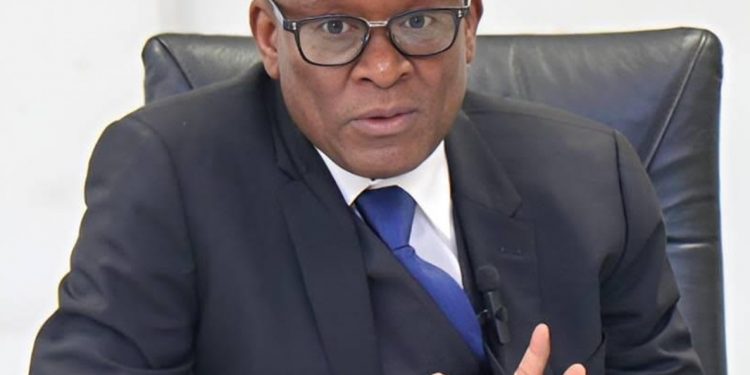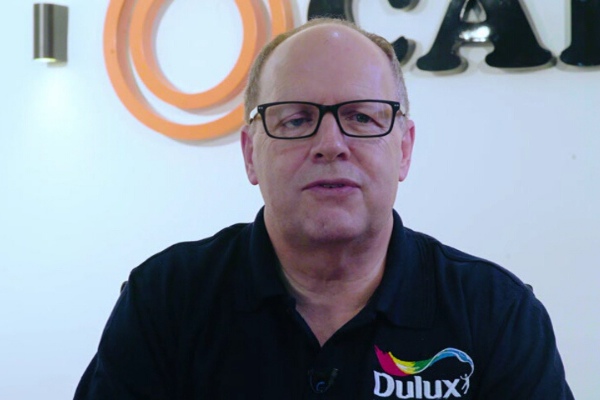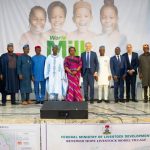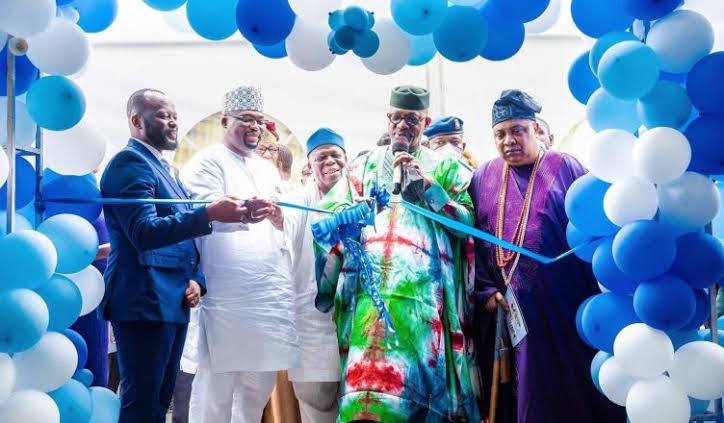The Nigerian government has reaffirmed its commitment to reviving the country’s struggling industrial sector, promising to tackle key challenges hindering growth and job creation. Minister of State for Industry, Trade, and Investment, Senator John Owan Enoh, made this pledge during a tour of major industrial hubs in Lagos and Ogun states, where he engaged with business leaders and factory operators.
The minister visited several manufacturing companies, including Sunflag Nigeria Limited, GB Foods Nigeria, Berger Paints Plc, FrieslandCampina WAMCO, Mojec Group, Coleman Cables, Mikano Industries, and others. Speaking at Sunflag Nigeria Limited, he acknowledged the decline of Nigeria’s textile industry and its impact on employment, assuring manufacturers of renewed government support.
To address these concerns, Enoh announced plans to convene a stakeholder session for the Cotton Textile Garments (CTG) sector and establish the Industrial Revolution Work Group (IRWG). This group, which will include representatives from the Manufacturers Association of Nigeria (MAN) and other key sectors, aims to facilitate dialogue between the government and industries to identify and resolve major bottlenecks.
The minister emphasized the government’s commitment to promoting locally made goods, noting that Tinubu’s administration is determined to make Nigeria an attractive destination for manufacturing investment. He highlighted ongoing efforts to create incentives that would ease the cost of doing business and encourage industrial expansion.
“We commend the resilience of these companies for continuing to invest in Nigeria despite economic challenges. The goal of this administration is to ease these difficulties and ensure industries thrive,” Enoh stated.
Among his key priorities, the minister listed the Nigeria Automotive Industry Development Plan (NAIDP), the Special Agro-Processing Zones (SAPZ), the revitalization of the textile industry, and the development of the petrochemical and pharmaceutical manufacturing sectors.
During his visit to Ogun State, Enoh met with Governor Dapo Abiodun, who unveiled ambitious plans to establish West Africa’s largest cotton and apparel industry. The project, set to employ up to 40,000 people, will be housed within a Special Processing Zone designed to attract investors and boost industrial output.
Governor Abiodun also shared insights from his recent trip to Morocco, where the country’s investor-friendly policies have positioned it as a hub for aircraft parts manufacturing. He emphasized that Nigeria could learn from this model to strengthen its own industrial base.
Recognizing Ogun State’s role as Nigeria’s main industrial hub, Enoh praised the state’s commitment to manufacturing growth. He assured business leaders that the federal government is aware of the constraints industries face but remains optimistic about Nigeria’s industrial potential.
“There are undeniable challenges, but there are also immense opportunities. By working together with industries and the private sector, we will unlock the full potential of Nigeria’s manufacturing sector,” Enoh concluded.
With the government’s renewed focus on industrial development, manufacturers are hopeful that long-standing challenges—ranging from infrastructure deficits to policy inconsistencies—will be addressed to create a more competitive business environment.










